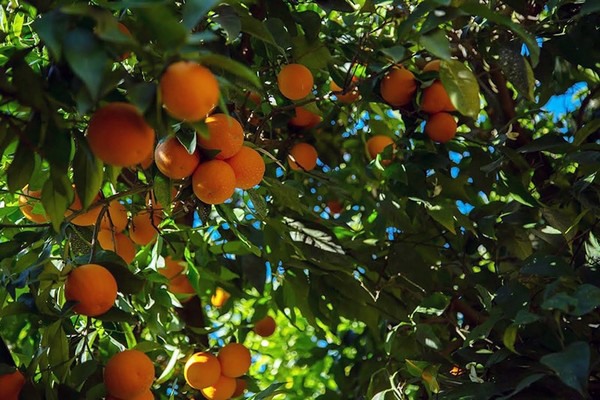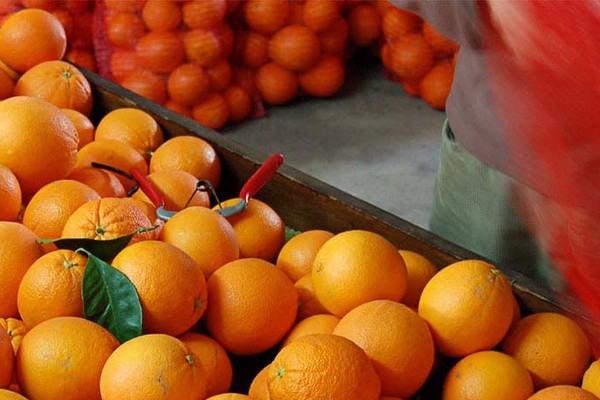Andalusia accounts for 50.63% of the nearly 26,000 hectares devoted to organic citrus cultivation in Spain, according to official figures on organic acreage and production for 2022. However, if we take only oranges into account, this figure rises to 77%, positioning the region as the undisputed leader in the production of organic oranges.
This year, organic producers have, just like conventional fruit growers, suffered the impact of the weather conditions. Juan Salamanca Ocaña, from Biovalle, says that by February 2023, the course of the campaigns of many of the plantations in the Guadalquivir Valley had already been determined by these conditions.

“A year ago, February was not a very cold month and the trees sprouted early, but towards the end of the month, heavy frosts caused those early sprouts to freeze. This, in combination with the drought, has resulted in the harvest in our plantation being reduced by between 45 and 50%. In organic farming, we are always working a bit more at the edge when it comes to the supply of nutrients, so saving the harvest has been quite challenging.”
“At Biovalle, we focus on the fruit's quality and ripeness. Given the lower production, we have had to modify our marketing schedules to be able to provide a continuous service throughout the campaign with the different varieties we grow. If we had started at the same date as in other campaigns, we would have finished with the Navelina too soon, and before starting with the Salustiana campaign, which is arriving just now.”

“However, if we had had more fruit, we would have sold it, because the demand is at the same level as in other years. As a family business, we decided to market our fruit directly from the start, working consistently and earning the trust of our customers. We don't buy oranges in Egypt or Morocco, because we are not interested in growth for growth's sake. So, this year we have prioritized and stood behind the customers that we already have in Spain, Belgium and France, with whom we have a long-standing relationship, so as not to neglect them, and we have chosen not to expand our clientele or volumes.”
“At Biovalle, we are not aiming for a model based simply on volumes and prices. We are here for vocational reasons, so we work with customers who, in addition to quality, are also seeking certain values. For example, we have customers in Belgium who are supplied organic oranges twice a week through the Tierra y Libertad cooperative. We visit them in their stores in Belgium, they come to our farm in Cordoba, we participate in tastings with customers…,” says Juan. “This creates very strong bonds, and we are very happy working with the model on which our project is based.”
Despite the sharp drop in the Navelina harvest, Biovalle is now starting to harvest the organic Salustiana, “with the advantage that we have a larger acreage of Salustiana, so we will be able to extend the campaign further and continue supplying oranges to our customers with the usual attention and service.”
 For more information:
For more information:
BioValle Organic Oranges
Gran vía Aulio Cornelio 3
14700 Palma del Río, Córdoba, Spain
Tel.: +34 639 864 534
[email protected]
https://biovalle.es
